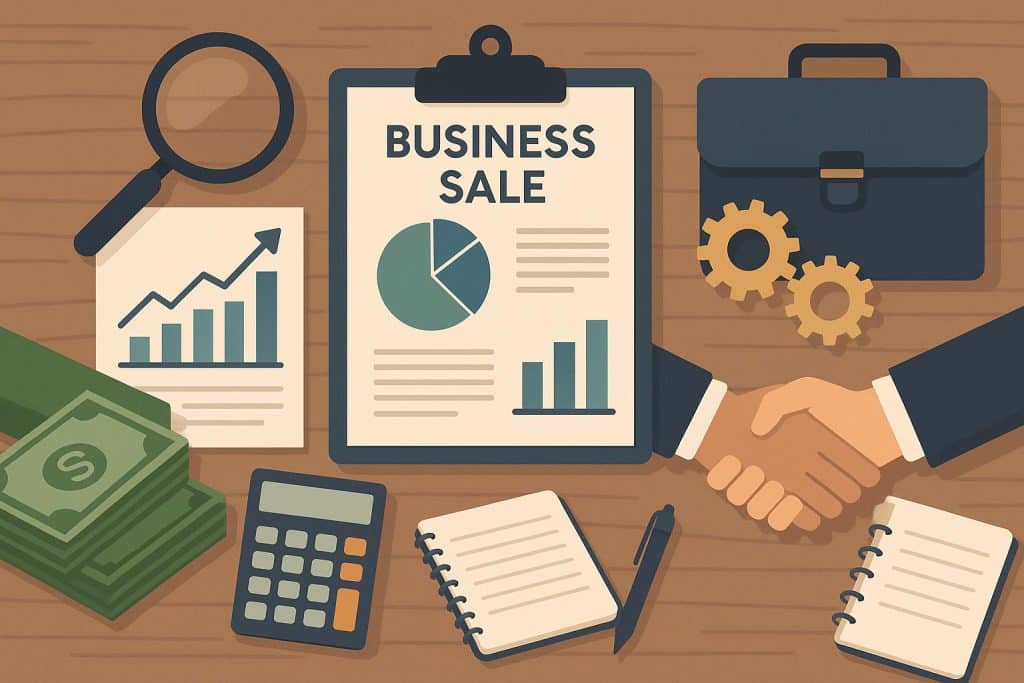Many business owners believe a broker’s main job is to “find a buyer.” That’s only part of the story. A skilled business broker brings structure, strategy, and protection to every deal. For owners of software or service companies, these elements can mean hundreds of thousands of dollars in extra value — or in avoided mistakes.
Let’s break down what great brokers actually do beyond matchmaking.
1. Setting the Right Market Price
The first step in any successful sale is pricing the business correctly. Too high, and real buyers stay away. Too low, and you leave money on the table.
Experienced brokers use current market data and recent deals to find the fair value range. They analyze revenue, profit margins, recurring revenue, churn, and customer concentration.
Equally important is understanding the difference between financial value and strategic value. Financial value reflects what your business is worth on its own. Strategic value arises when a buyer sees potential synergies — such as access to new customers or technology.
A knowledgeable broker knows how to position your company to attract both types of buyers. Learn how a specialist business broker for software and service companies can help you identify strategic value and stand out to the right acquirers.
2. Protecting Confidentiality and Qualifying Buyers
Selling a business is sensitive. Employees, customers, and competitors can’t know what’s happening until the right time. Brokers manage confidentiality by controlling who gets information and when.
They also qualify potential buyers before sharing financials. This saves you from wasting hours with people who don’t have the funds, experience, or intent to close.
A strong broker filters out tire kickers and focuses on serious, verified buyers. That’s one of the most significant differences between a smooth process and a stressful one.
3. Creating Competition Among Buyers
One of the most potent ways to raise your sale price is competition.
When multiple qualified buyers are interested, each knows they need to put forward their best offer — and quickly. A skilled broker manages this process by setting deadlines, structuring data access, and communicating strategically.
Even one extra bidder can make a dramatic difference in both price and deal terms. In many cases, brokers don’t “find” one buyer — they create a market of buyers.
4. Structuring the Deal for Maximum Cash at Close
Headline numbers can be misleading. A $20 million offer doesn’t mean $20 million in your pocket.
A professional broker helps you focus on what matters most: cash at closing and the after-tax proceeds.
They know how to negotiate deal structures to minimize risk — avoiding inflated working capital targets, long earnouts, or unsecured seller notes. This expertise ensures you walk away with real money in hand, not empty promises.
If you’re preparing to sell within the next year, read more about how to sell your SaaS business for maximum value and protect your cash at closing.
5. Keeping Everyone on Track
Selling a business takes time — often six to nine months. During that period, it’s easy for momentum to fade.
A broker acts as a project manager, coordinating attorneys, accountants, and buyers. They keep documents moving, deadlines clear, and communication calm when things get tense.
Without that coordination, deals stall, emotions rise, and minor problems can derail the process. The broker’s job is to make sure the agreement crosses the finish line.
6. Protecting You After the Sale
Once the deal closes, the story isn’t over. Purchase agreements often include representations, warranties, and indemnities that can affect you years later.
An experienced broker ensures your attorney catches these issues early and that you understand what you’re signing. The goal isn’t just to close a transaction — it’s to protect your financial and personal peace of mind.
That’s the difference between a quick deal and a smart deal.
Final Thoughts
The best brokers do far more than connect buyers and sellers. They design the process, negotiate the structure, protect confidentiality, and guide everyone through to closing.
If you own a software or service-based company with $3–$20 million in annual revenue, the right broker can make the difference between a good exit and a great one.
Learn more about how expert deal management and market positioning can help you achieve a premium sale at David Jacobs Business Broker.
